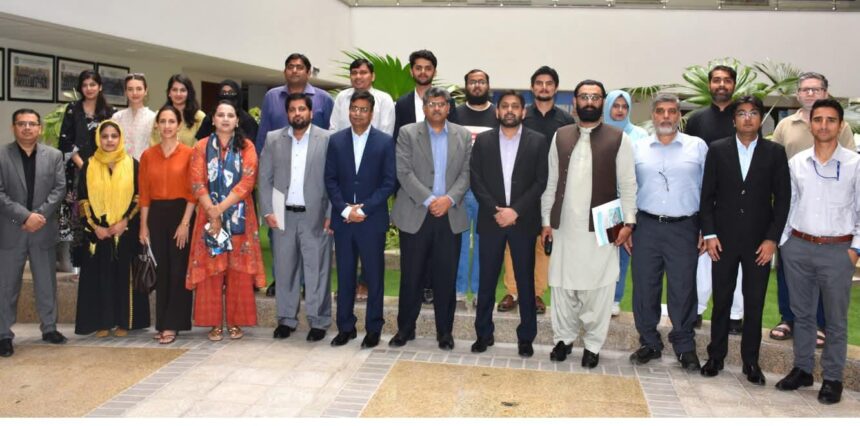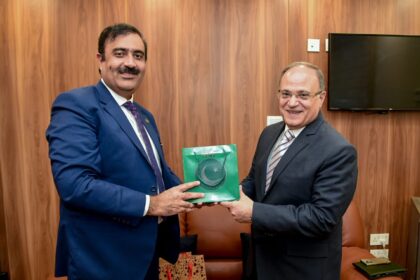The U.S.–Pakistan Centre for Advanced Studies in Energy (USPCAS-E) at NUST has launched a major new report analyzing the potential for hydrogen infrastructure to replace diesel fuel in Pakistan’s transportation sector. The findings were unveiled at a high-level roundtable discussion attended by government officials, energy experts, and industry leaders, focusing on green hydrogen’s role in supporting a clean energy transition for the country.
The event opened with remarks from Dr. Majid Ali, Associate Professor at USPCAS-E, who underscored the need for timely policy dialogue and the exploration of clean fuel alternatives in light of Pakistan’s energy challenges. Dr. Rabia Liaquat, Head of Department for Environmental Science and Engineering, provided background on USPCAS-E’s ongoing evidence-based research aimed at informing national energy policy.
Key results from the newly published report, “Techno-economic Analysis of Hydrogen Infrastructure to Replace Diesel for Mobility Applications in Pakistan,” were presented by Ms. Alishba Maqsood, Research Assistant at USPCAS-E. The ensuing panel discussion, moderated by Dr. Mustafa Anwar, Assistant Professor, brought together distinguished voices from the United Nations Industrial Development Organization, Ministry of Science and Technology, Ministry of Energy, National Energy Conservation Center (NEECA), National Skills University, and renewable energy experts.
Participants explored hydrogen’s potential to decarbonize Pakistan’s transport and industrial sectors, discussed possible pilot projects along the main highway for hydrogen fueling stations, and stressed the need for local innovation, supportive policy frameworks, and immediate development of a National Hydrogen Strategy. The roundtable emphasized the significance of cross-sector cooperation and regulatory reforms to enable Pakistan’s entry into the growing global hydrogen market.
The event concluded with a call to action for continued collaboration across academia, industry, and government to build a resilient, sustainable energy future for Pakistan. Organizers expressed gratitude to all speakers and participants for their commitment to advancing clean energy solutions in the country.











